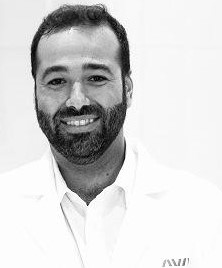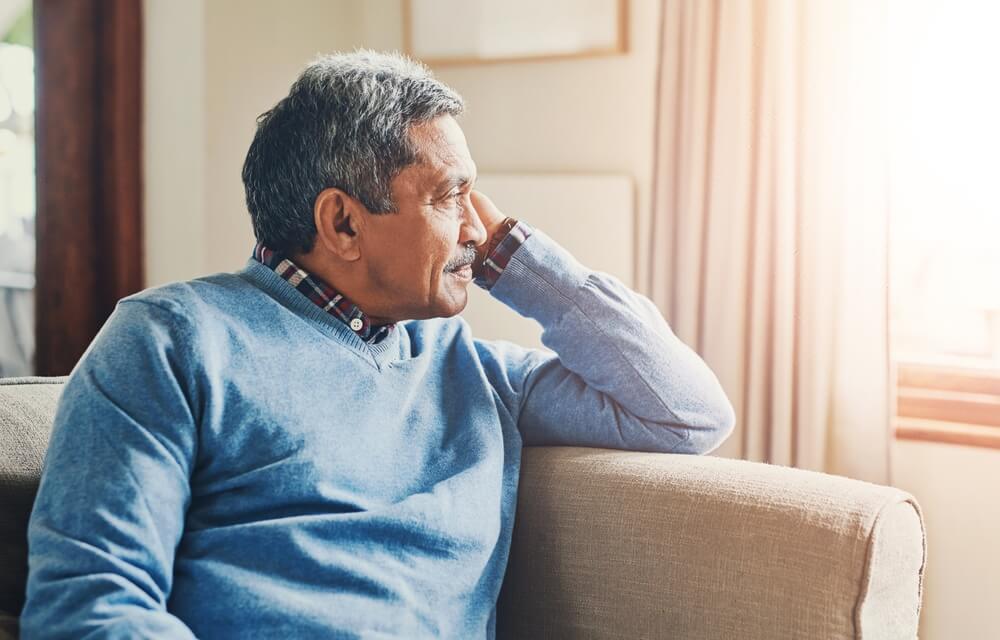
Finding Hope After a Stroke: Navigating Post-Stroke Depression
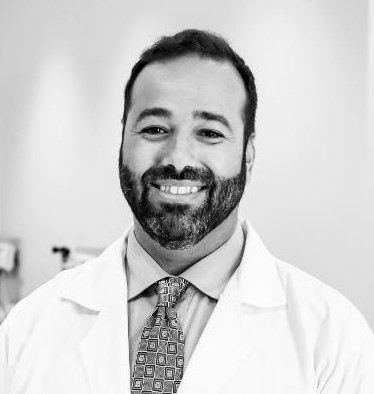

The aftermath of a stroke is a deeply challenging experience, both physically and emotionally. While the physical challenges of regaining mobility and strength often take center stage, the emotional toll of a stroke can be equally profound.
Compared to physical limitations, the depression many experience after stroke isn’t always visible on the outside. This invisible struggle can make recovery all the more daunting and lead to feelings of isolation, as survivors may feel misunderstood or unsupported.
We’re here to shed light on this critical yet often overlooked aspect of stroke recovery. We’ll discuss the key factors involved in post-stroke depression, its impact on recovery, and the available treatment options.
What Is Post-Stroke Depression?
Along with its physical impacts, a stroke can cause or worsen depression. Post-stroke depression (PSD) is a mental health condition that occurs after a stroke and is characterized by low mood, loss of interest or pleasure in activities, and other depressive symptoms. While its symptoms are similar to those of other forms of depression, PSD develops specifically after stroke, often arising from its combined neurological impact and psychological toll.
According to the American Stroke Association, “about 30% of people who have a stroke get depressed.” Depression can occur immediately after the stroke event, or it may develop months or years later. Because depression is a mental health condition, it can seriously impact a person’s quality of life and emotional well-being, as well as impact their recovery from the stroke
What Are the Signs of Post-Stroke Depression?
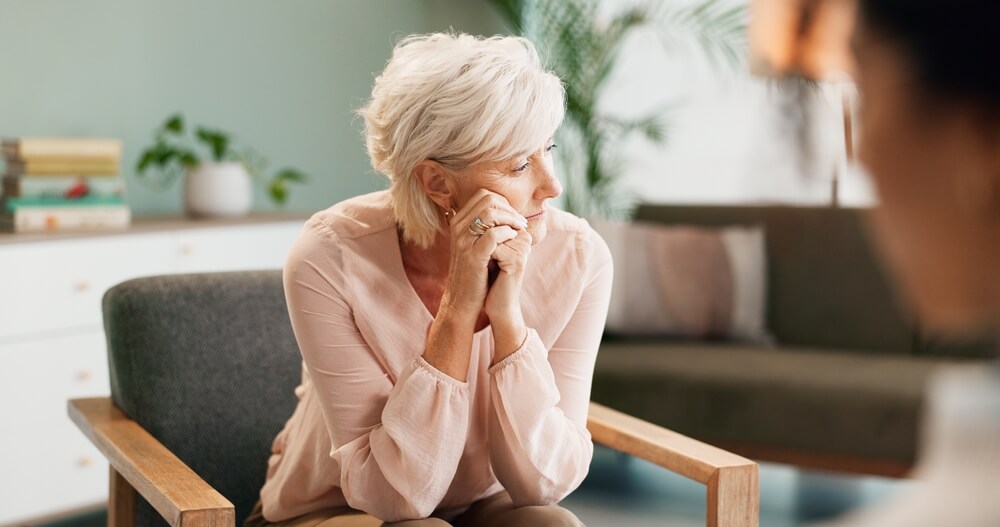
Post-stroke depression can manifest in a variety of ways. While experiencing some sadness, frustration, and emotional challenges can be a normal part of post-stroke adjustment, we encourage you to seek help if you find any of these PSD symptoms are prolonged or severe.
- Persistent sadness: Feelings of helplessness, hopelessness, or worthlessness
- Apathy and lack of motivation: Difficulty finding joy in previously enjoyed activities
- Irritability and anger: Increased frustration and irritability
- Anxiety and fear: May be exacerbated by concerns about future health, financial stability, and independence
- Social withdrawal: Isolation and withdrawal from social interactions (which can in turn exacerbate depression due to the feelings of loneliness that arise)
- Sleep disturbances: Trouble falling or staying asleep, or excessive sleep
- Increase or decrease in appetite: Major changes in your appetite
- Aches and pains: Potential pain or discomfort from physical manifestations of depression
- Suicidal thoughts: Thoughts of self-harm or suicide attempts
- Energy: Feeling tired or lacking energy.
Don’t hesitate to seek professional help — both physical and mental. If you or a loved one are struggling with post-stroke depression, please reach out to a mental health professional.
Why Does Depression Occur After a Stroke?
Understanding the underlying causes of PSD is crucial for both prevention and treatment. It can also help cultivate greater empathy for those who are struggling.
- Neurological impact: Stroke can disrupt the delicate balance of your brain chemistry, affecting mood and emotions. When your brain is physically injured, it can have a hard time maintaining the neurological function and neurotransmitter production that help create positive feelings.
- Psychological impact: The psychological impacts of stroke can be numerous — the frustration of struggling to communicate, the fear of the unknown, the sadness that accompanies the loss of independence. The trauma of the event itself, along with the challenges of adapting to a new reality, can be overwhelming. It’s important to remember that these emotional struggles are real and valid.
The Impact of Post-Stroke Depression on Recovery
Research shows that “PSD is associated with poorer functional outcomes after stroke.” In addition to reducing quality of life, PSD can lower motivation, causing post-stroke patients to not fully engage in their rehabilitation program. This can hinder physical, cognitive, and emotional recovery.
Rest assured, studies highlight improved outcomes when PSD is treated early:
- Individuals who receive an early diagnosis and treatment for PSD have “lower mortality rates [and] cognitive impairments, improved long-term disability, a higher quality of life, and lower rates of suicidal thoughts” compared to those who do not.
- Antidepressants can have a beneficial effect on post-stroke recovery. In one study, those with or without PSD who were treated with antidepressants showed an “increased probability of survival at the 9-year follow-up compared with similar patients given placebo.”
Treatment Options for Post-Stroke Depression
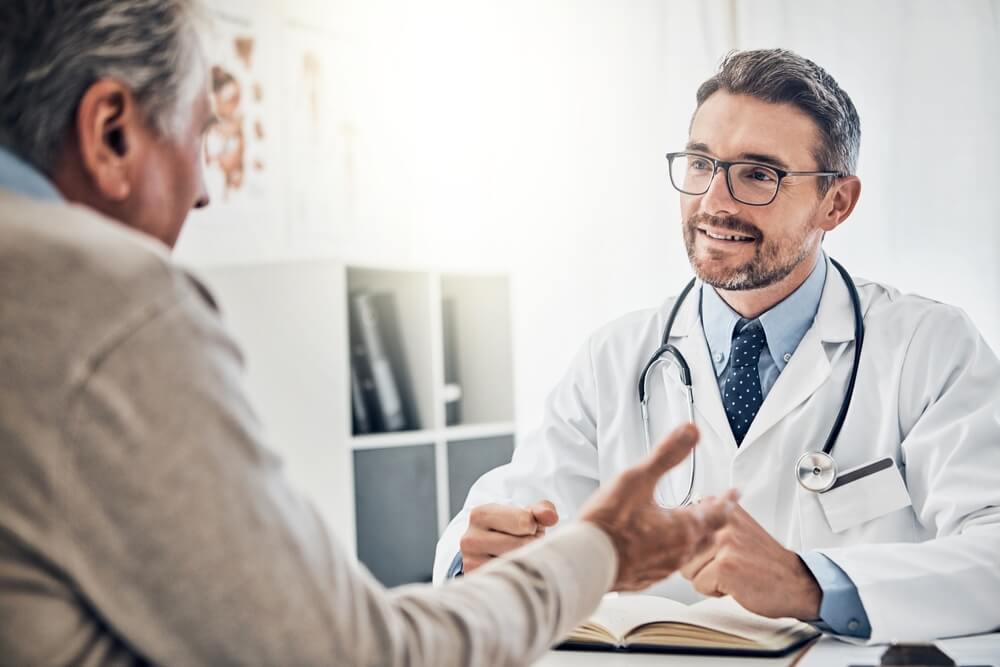
In the face of the challenges that stroke and PSD bring, know there is compassionate multidisciplinary care available. A multifaceted approach combining medication, therapy, and lifestyle adjustments often yields the best results. We’re here to help you on your recovery journey, one step at a time.
Remember:
- Every individual is unique. The most effective treatment approach will vary depending on the severity of depression, individual needs, and personal preferences.
- It’s crucial to work closely with your healthcare team to develop a personalized treatment plan.
Medication
Antidepressant medications, such as selective serotonin reuptake inhibitors (SSRIs), can be effective in managing the symptoms of PSD. Your unique needs and symptoms will guide you and your provider in determining the best medication and dosage for effective treatment.
It’s also essential to discuss potential side effects and drug interactions with your doctor, as some medications may interact with other medications you’re taking for stroke recovery.
Therapy
Several therapeutic approaches can effectively address post-stroke depression. These include:
- Cognitive behavioral therapy (CBT): This type of therapy helps individuals identify and change negative thought patterns and behaviors that can contribute to depression.
- Counseling: Individual, family, or group counseling can provide a safe space to process emotions, build coping mechanisms, and improve communication.
- Support groups: Connecting with other stroke survivors can offer valuable emotional support, reduce feelings of isolation, and provide a sense of community.
Lifestyle and Rehabilitation
Lifestyle modifications play a crucial role in managing post-stroke depression. Incorporating these strategies into your recovery plan can improve your mood and overall well-being.
- Physical activity: Regular physical activity, such as walking, swimming, or gentle exercise, can improve mood, reduce stress, and boost overall well-being.
- Healthy lifestyle: Research notes that “a healthy Mediterranean diet, rich in vitamin D, is associated with fewer depressive symptoms in cohorts of post-stroke patients.” Getting enough sleep and managing stress through relaxation techniques like deep breathing or meditation can also help improve mood.
- Rehabilitation: Physical, occupational, and speech therapy can offer routes to physical function and independence. Therapists can assist you in finding strategies that align with your specific circumstances, paving the way toward improved functioning, mood, and self-esteem.
Hyperbaric Oxygen Therapy
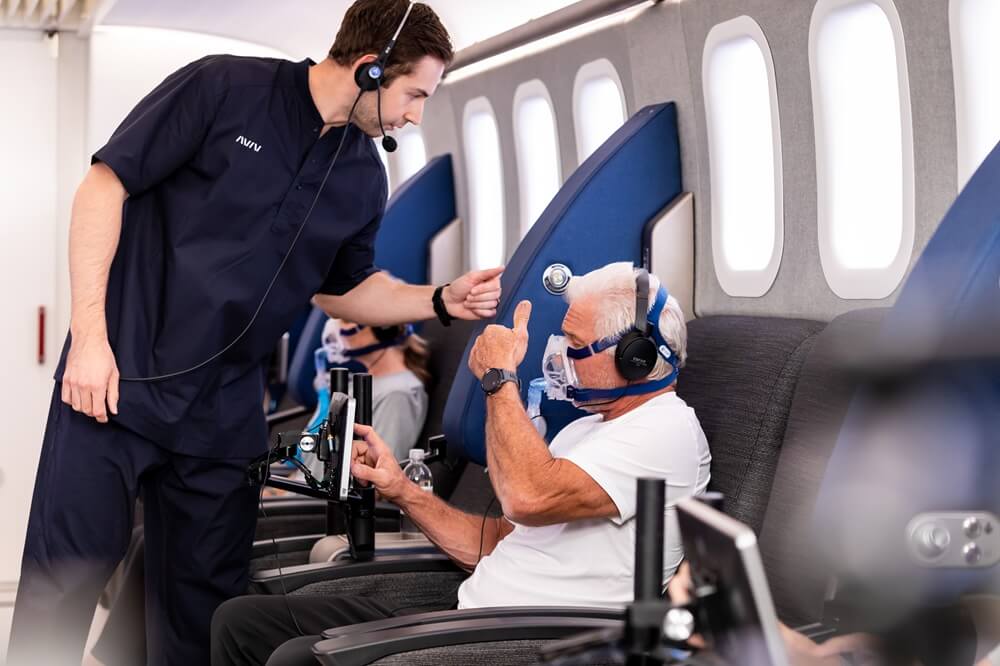
Aviv Clinics offers innovative approaches to post-stroke recovery, including a unique hyperbaric oxygen therapy (HBOT) protocol available as part of the multidisciplinary Aviv Medical Program.
Evidence indicates that by increasing the delivery of oxygen to the brain, HBOT promotes neuroplasticity, the brain’s ability to reorganize itself and form new connections. This enhanced oxygenation can improve cognitive function and reduce inflammation, potentially alleviating neurological factors contributing to depression.
Research illustrates that “HBOT can lead to significant neurological improvements in post-stroke patients even at chronic late stages.”
Our integrated program can combine a personalized combination of HBOT, nutritional guidance, physical training, and cognitive exercises under one roof, all tailored to your biology. This treatment, the Aviv Medical Program, is only offered in the U.S. at Aviv Clinics in Florida.
Learn More: Hyperbaric Oxygen Therapy Options for Stroke Recovery>>
The Role of Family and Caregivers in Post-Stroke Depression
If you’re a caregiver or family member of someone with depression after a stroke, you can make a profound difference in their care journey.
Here’s how:
- Fostering open communication: Create a safe space for the person to share their feelings, frustrations, and concerns without judgment.
- Showing empathy and understanding: Acknowledge the emotional impact of a stroke and offer your support and encouragement.
- Creating a supportive environment: Encourage social interaction, engage in activities they enjoy, and create a positive and uplifting atmosphere. Offer help during their recovery, and ask them what kind of support they need most.
- Prioritizing self-care: Remember to take care of yourself as well. Caregiving can be demanding. Utilize support networks, seek respite care when possible, and prioritize your own well-being.
Nurturing Hope and Recovery for Stroke Survivors
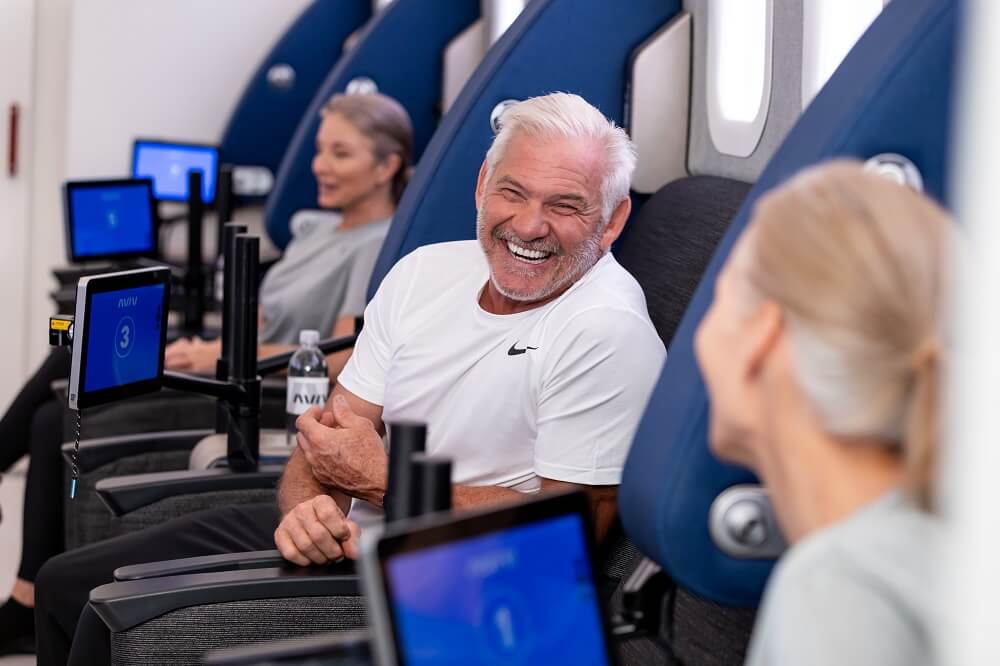
The emotional and mental impacts of stroke must be discussed and addressed. Stroke recovery can be hard — there’s no need to suffer alone. With support, resilience, and the right treatment for post-stroke depression, survivors can reclaim their mental health and quality of life.
If you’d like to speak with someone about your or a loved one’s stroke and depression, please reach out to Aviv Clinics. We can offer personalized support and walk you through our comprehensive PSD treatments, which may include our advanced HBOT protocol.
